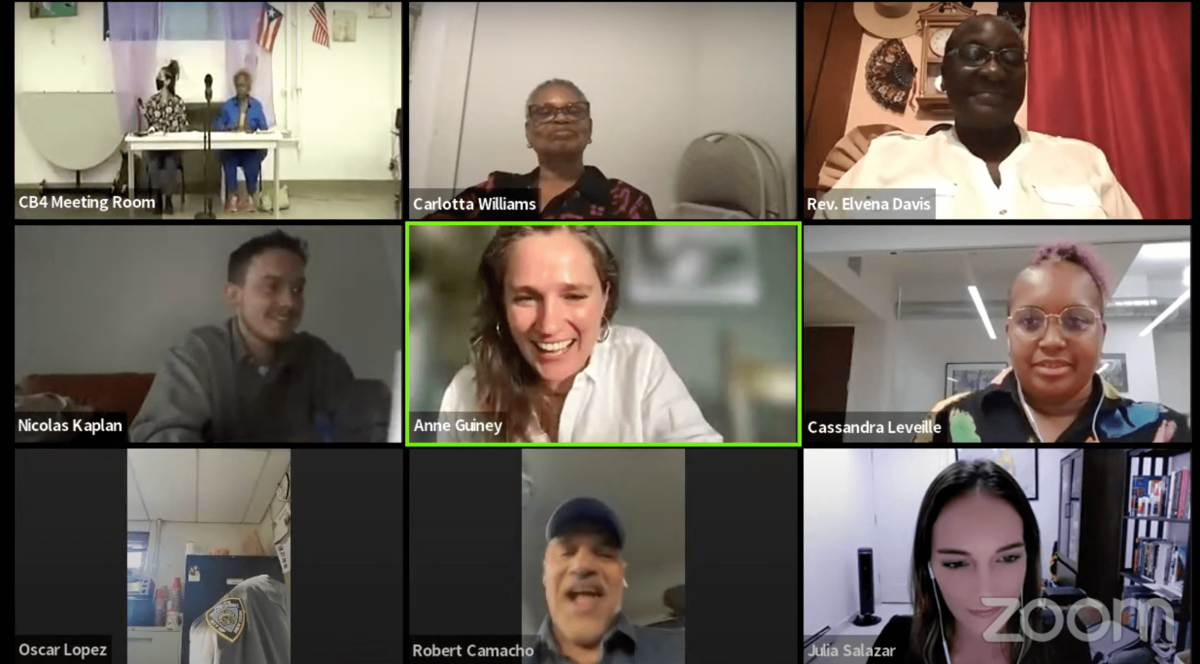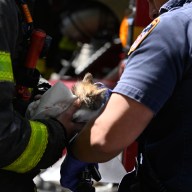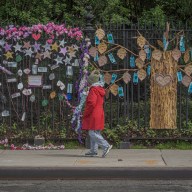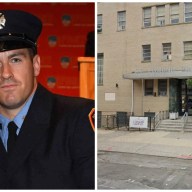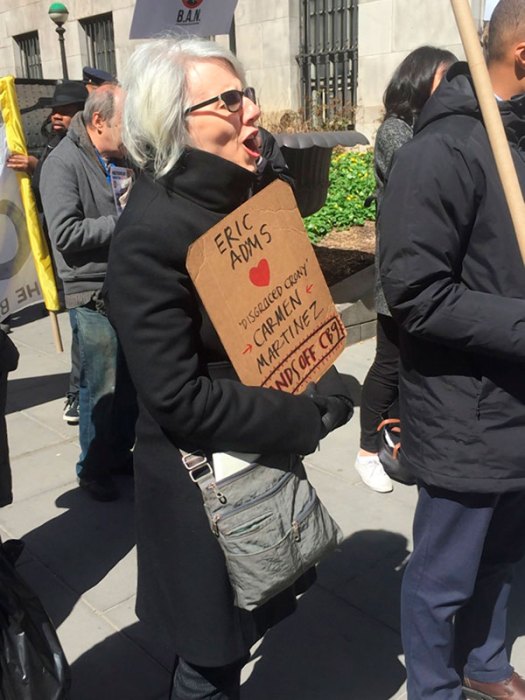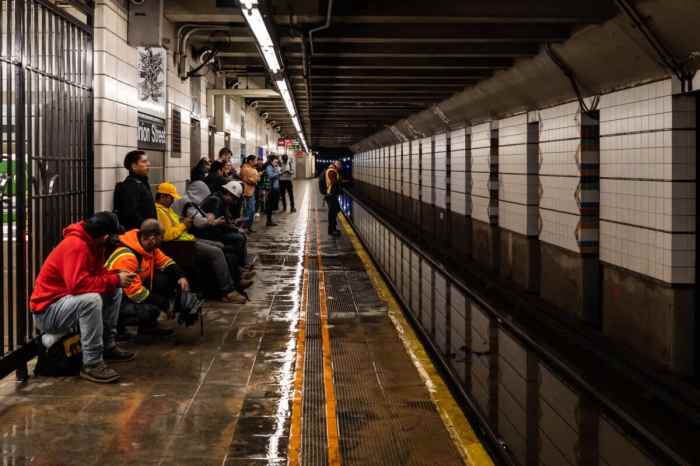Last month, for the first time in two and a half years, Governor Kathy Hochul decided not to renew the state’s COVID-19 State of Emergency. The decision rolled back some of her emergency powers — and brought to an end the era of all-virtual community board meetings.
Most of the city’s 59 community boards had been meeting via Zoom or WebEx since March 2020, when then-governor Andrew Cuomo first declared a state of emergency in New York State. The quasi-governmental advisory bodies meet regularly for ten months out of the year to discuss and issue their recommendations on everything from liquor licenses to large-scale rezonings, and are often the first point of contact for local constituents.
Hochul’s sudden decision not to renew the emergency declaration created a problem for Brooklyn’s Community Board 6, which had its first full board meeting of the fall scheduled for Sept. 14 on Zoom.
Hybrid meetings and not enough space
“Some reading this may remember, from the pre-COVID world, that we don’t have our own meeting space to accommodate the turnout anticipated for a full board meeting,” wrote CB6 District Manager Mike Racciopo in an email alerting the public to the delay. “Once we’ve secured a meeting location and date, it will be made public.”
“Letting the EO expire was done despite COVID statistics, such as hospitalizations, remaining above the threshold used to justify extensions as recently as August 13th,” Racciopo added.
The board held the meeting in-person at a local elementary school on Sept. 28, two weeks after it had originally planned to convene. Its next two meetings will also be held fully in-person either at its Baltic Street office or at a larger nearby venue.
The state legislature amended the OML in the 2022 state budget to allow for the continued use of virtual meetings through 2024 — but only under “extraordinary circumstances,” and only if enough members of the body to make a quorum also meet in-person in a place accessible to the public.
To that end, Brooklyn Community Board 4 in Bushwick is holding hybrid meetings and plans to utilize the virtual component for “as long as the board is funded to do so,” said district manager Celeste Leon in an email.
“It’s been touch-and-go for a while, we haven’t really known how long it’s going to be extended since the spring, because they were pulling back all the safety measures and regulations,” Leon told Brooklyn Paper.
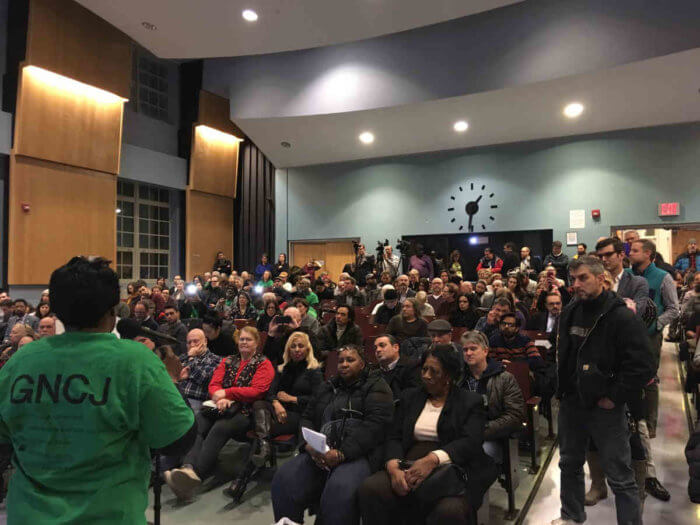
Holding hybrid meetings isn’t easy, and it comes at a price, Leon told Brooklyn Paper last year.
But she and a number of other district managers from around the city have been meeting regularly for more than a year and a half to discuss their plans and problems, the status of the Open Meetings Law, and share resources.
CB4 held its first hybrid meeting last spring, she said, and struggled to hit its stride for those first few months. The board returned last month ready for hybrid full board meetings and public hearings — committee members and attendees can gather in-person at the Hope Gardens Senior Center, where CB4 has held its larger meetings for years — or watch on Zoom.
Committee meetings, which were usually held at the board’s district office, are remaining fully virtual for now.
“We have yet to have to come back to in-person for the committees, because of the state of emergencies being extended, but I imagine that within the next few months, we may be in that position,” Leon explained.
The state emergency declaration is over — but a separate COVID-19 state of emergency is still in place in New York City, at least for now, so boards are still allowed to hold some meetings virtually.
Queens Community Board 1, which covers Astoria and parts of Long Island City and Woodside, is also hosting its full board meetings in-person at the Astoria World Manor — while livestreaming to its YouTube account — and their committee meetings virtually, said district manager Florence Koulouris.
“To the best of my knowledge [turnout] has been equal,” Koulouris said. “Prior to the pandemic, we had approximately 100 in attendance at the Astoria World Manor, and throughout the pandemic, we had approximately 90-100 in attendance over Zoom. It’s always been very close, it hasn’t been a drastic number.”
The board held its first in-person meeting since the start of the pandemic back in May — not because of any executive order, but because it was hosting a public hearing on the contentious Innovation QNS rezoning.
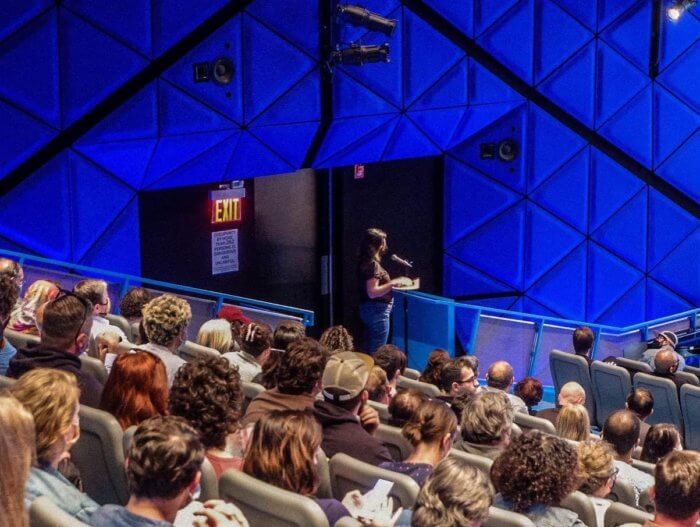
Koulouris, like Leon, was part of the group of district managers meeting regularly to discuss their game plan for hybrid and in-person meetings.
“The years of expertise and generosity of the other district managers has been magnificent,” she said. “The district managers have been a huge resource, we help each other wholeheartedly … we rely on each other, we pick each other up when one of us doesn’t know how to do something or if we run into a hardship doing it with the new protocols.”
The “institutional knowledge” and dedication of her fellow district managers is “absolutely amazing,” she said.
Before the pandemic, community boards were not allowed to take virtual votes or hold remote meetings, she said, so they were unprepared when Zoom meetings took over as the norm.
“I think, for the very best of it, we’ve really put up and we’ve really shined with it,” Koulouris said. “It’s not perfect. You can’t help it if Spectrum or Fios kicks you off. You can’t help it if someone Zoom-bombs you, that’s not your fault. I think that we’ve really done a great job with whatever we’ve been given.”
Community Board leaders help each other, but struggle to find additional support
Outside of the circle of district managers, support has been a little hard to come by. The offices of former Queens Borough President Sharon Lee and current Queens beep Donovan Richards have been enormously helpful, Koulouris said.
But Leon has struggled to get help from the city’s Department of Technology Innovation. In the beginning, everyone was still figuring things out, she said. But in January, when a new mayoral administration brought staff and leadership changes to most city agencies, she lost contact with the department for months.
“We had many IT issues that went unresolved, we could not set up computers, servers down, telephones not working — and sometimes it would take a month, three months, six months, for them to get back to us,” she said.
She finally secured a meeting with OTI after reaching out to Gutiérrezz, she said, and a new tech liaison was hired in August.
Now that the foundation for hybrid meetings has been laid — Brooklyn CB4 and many other community boards ended up hiring third-party vendors to handle setup and hardware — it’s been relatively simple to maintain, Leon said. Budget-wise, for now, it seems they’ll be able to continue for a while.
“Now that we’re going back in-person, we have other fiscal [responsibilities,]” she said. “If the city were trying to cut the board’s budget … it may affect our ability to do what we do now, because we would have to identify savings, and that may be something we’re forced to cut even though we don’t want to.”
Their budget was cut during the pandemic, she said, and she hopes it doesn’t happen again. The in-person meetings have had relatively low turnout and the board does ask that people wear masks and comply with the guidelines of the senior center, Leon said, though they technically can’t require face coverings anymore.
Other boards across the city have taken a similar approach — Bronx Community Board 11 and Manhattan Community Board 3 are hosting committee meetings virtually and full board and executive committee meetings in-person, according to their websites. Others — like Brooklyn Community Board 1 — have posted agendas that list only Zoom or WebEx links.
It’s not quite clear when the mayoral emergency declaration will finally end, or how that will further impact the boards, but Brooklyn CB6’s Raccioppo said he’d like to see a hybrid compromise.
“I think ideally we’d be able to have all committee meetings virtually and the full board meetings in-person with a virtual component,” he said.


